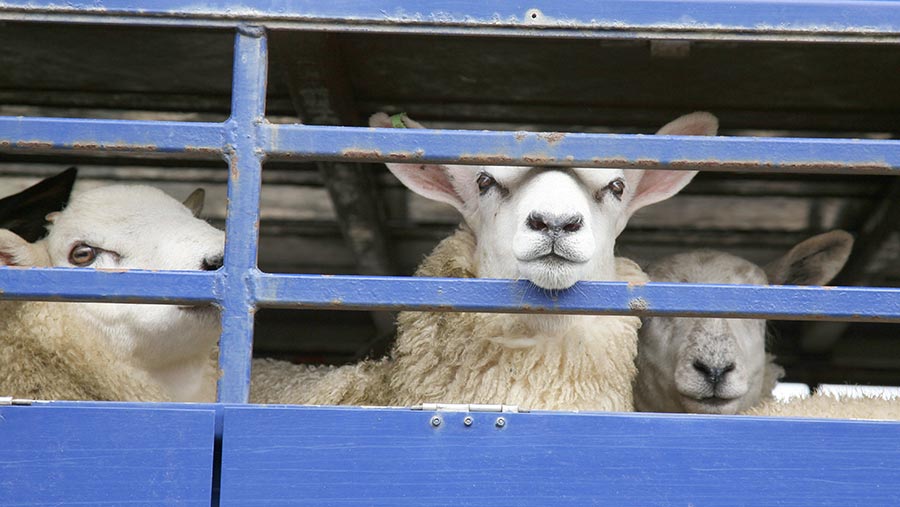MPs to debate petition seeking live animal exports ban
 © Tim Scrivener
© Tim Scrivener MPs will discuss a possible ban on live exports of livestock from the UK after a petition gained enough support to prompt parliament to call a debate on the issue.
By 23 January, more than 62,000 people had signed an online petition calling for an end to the export of live animals after Brexit.
The online petition says: “The transport of live animals exported from the UK causes immense suffering. This trade is governed by EU law, not the UK government.
See also: Will farmers pay price of government’s green Brexit?
“The government should plan legislation to ban the export of live farm animals in favour of a carcass-only trade and introduce this as soon as we leave the EU.”
The debate will take place in parliament on 26 February.
Defra secretary Michael Gove has supported calls to improve farm animal welfare and to protect the environment as the UK leaves the European Union.
Gove: ‘restrict live exports’
In December, Mr Gove indicated he intends to “restrict live exports” of animals for slaughter, in support of calls from the Conservative Animal Welfare Foundation and Conservative Environment Network.
The Conservative government’s manifesto says “as we leave the European Union, we can take early steps to control the export of live farm animals for slaughter”.
In October, 22 cross-party MPs supported a motion tabled by Conservative MP Zac Goldsmith calling for a (post-Brexit) ban on the live export of animals for slaughter.
The Live Animal Exports (Prohibition) Bill passed its first hurdle in parliament on 25 October 2017.
The animal charity Compassion in World Farming (CIWF) said confirmation of a parliamentary debate was “great news”.
UFU: Economics ‘severely hindered’
But farming unions have challenged the credibility of proposals to ban the live export of livestock from the UK.
The Ulster Farmers’ Union said peer reviewed research studies have demonstrated that where livestock are transported in accordance with existing EU legal requirements, there is no adverse impact on animal welfare or the performance of the animals.
UFU deputy president Victor Chestnutt said: “We are very much of the opinion that demonstrating high standards of animal welfare is crucial for the facilitation of the live export trade and we believe our exporters are meeting these standards.”
The union has also warned that the economics of livestock production in Northern Ireland would be “severely hindered” if a ban was imposed.
Five-year averages for Northern Ireland show that almost 60,000 cattle and 485,000 sheep are exported live annually to a variety of destinations in Great Britain, the Republic of Ireland and also further afield in continental Europe.
HM Revenue and Customs figures show exports of live cattle, sheep and pigs tripled in value over the past five years, to more than £21m in 2016.
